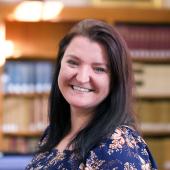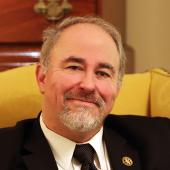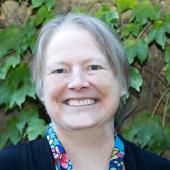
Basics of Early New England Research
As a group, 17th-century New Englanders are arguably one of the most studied groups on the planet, and thus descendants are blessed with a multitude of resources. In many cases, town vital records, church, colony, court, probate, land, military, and tax records not only have survived, but have been abstracted and published. And yet, early New England is not without its challenges and idiosyncrasies. This five-week course will discuss the settlement of and migrations within New England, how to locate and utilize original and published records, and strategies for breaking down brick walls. This course will cover the colonial period (1620–1776) in the area of what is today Connecticut, Maine, Massachusetts, New Hampshire, Rhode Island, and Vermont.
This course includes five 90-minute classes; exclusive access to handouts and recordings of each presentation; and in-depth q&a sessions with the instructors.
March 1
Class 1: Settlement of New England
Presented by Ann G. Lawthers
From Plymouth Colony to the frontiers of northern New England, early migration and settlement patterns are complex. By understanding how and why New Englanders settled where they did, you will understand the development of the town as the focus of New England life and genealogical records. This understanding may also inform genealogical conclusions about your own ancestors.
March 8
Class 2: Seventeenth-Century Published Resources
Presented by Lindsay Fulton
Don’t reinvent the wheel! Many of New England’s early records and families have been researched, transcribed, or compiled as published sources. This class will direct you to essential finding aids, study projects, and scholarship.
March 15
Class 3: Working in and Understanding Original Records
Presented by Ann G. Lawthers
While much has been transcribed and published, there are still instances in which you will need to locate original records, decipher old handwriting, and understand the jurisdictions specific to your ancestor’s time and place. This class helps you identify what records exist for each early New England region.
March 22
Class 4: Researching Colonial and Revolutionary War Soldiers
Presented by David Allen Lambert
From colonial conflicts to America’s fight for independence, military service was a part of life for many early New Englanders. Chief Genealogist David Allen Lambert will provide historical context for the major colonial conflicts, discuss what records are available to family historians, and how to compile the story of your early veteran ancestors.
March 29
Class 5: Thinking Outside the Box: Breaking Down Brick Walls in Early New England
Presented by Christopher C. Child
As with most areas of family history, early New England is not without its challenges. Common names, missing maiden names, and unknown origins are just some of the issues facing family historians for this period. In this class, Christopher C. Child will bring to light some lesser-known resources, discuss strategies for breaking down genealogical brick walls, and highlight a case study using DNA to solve a genealogical brick wall.




